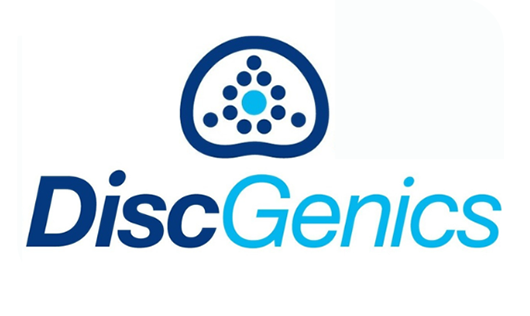DiscGenics is committed to revolutionizing the way millions of patients suffering from chronic back pain will be treated through a focus on developing regenerative therapies that alleviate pain and restore function in patients with degenerative diseases of the spine. They are engineering highly specialized therapeutic progenitor cells (Discogenic Cells) that uniquely address the complex environment of the degenerated disc. DiscGenics’ first product candidate, IDCT (rebonuputemcel), is a regenerative solution; an allogeneic, injectable (non-surgical) cell therapy that utilizes proprietary Discogenic Cells to treat mild to moderate adult lumbar disc degeneration.
Summary
- The Product
- IDCT (injectable Discogenic Cell therapy) is a single-injection drug that uses donated spinal disc cells to heal degenerative disc disease without surgery.
- IDCT is designed to halt the progression of DDD and regenerate the disc from the inside-out.
- The Need
- More than 2.5 million patients in the U.S. are diagnosed with lumbar DDD each year. This is based on incidence of 16 million patients with LBP in North America.
- Competition
- Mesoblast LBP cell therapy comprised of unspecialized MSCs – same product being used to treat chronic heart failure.
- 1st PH3 didn’t achieve primary endpoint; going back to complete another PH 3 trial.
- The Team. Founders. Others.
- DiscGenics is led by a veteran team of medical device and biologics industry executives, practicing clinicians and successful innovators in the orthopedics, spinal and neurosurgical markets.
- Scientific Founder: Dr. Valery Kukekov
- Medical Founder: Kevin Foley
- Other Founders: Flagg Flanagan & others
- Technology
- Cell culture method begins with live cells from donated adult human spinal disc tissue, manipulates them through a proprietary culture process in the lab that drives them to a progenitor state to improve potency. We then freeze them to maintain viability, thaw them prior to use, and mix them with a viscous carrier before injection into the disc.
- Allogeneic nature allows us to select, enrich, and expand donor cells for use in any other human being – meaning there is no need for donor matching nor risk of immune reaction to the cells.
- Covered by 33 patents issued, 26 pending, and trade secret protections.
- Stage of development
- Beginning Late-stage Clinical BioPharma to a Biologic License Approval (BLA).
- Initiating PH3 clinical program following successful PH2 clinical trial.
- Extensive pre-clinical animal studies that supported our IND and recently completed two randomized, double-blind, controlled clinical studies of IDCT in the U.S. and Japan.
- No safety concerns associated with the drug product.
- Introduction of IDCT into the disc results in an unprecedented increase in disc volume and improvement in disc architecture.
- In our U.S trial, this change was accompanied by clinically meaningful improvements in pain, function, and quality of life, and importantly, a decrease in pain medication usage.
- Target markets
- Patients with Mild to Moderate Degenerative Disc Disease who have been unresponsive to conservative therapy for at least 3 months.
- US. and Japan with potential to enter into other geographies.
- Sales channels
- Anticipate pharmaceutical drug model with a dedicated sales force and direct to patient marketing.
- The potential
- IDCT has the potential to offer millions of patients suffering from DDD a regenerative solution.
- Blockbuster Drug (Sales >than $ 1B) in Year 3 of Commercialization in the US.
- Can you do it?
- Today, IDCT is being manufactured at our built for purpose facility in SLC where we can produce a few thousand doses per donor lot, offering an affordable and scalable solution for a disease that afflicts millions.
